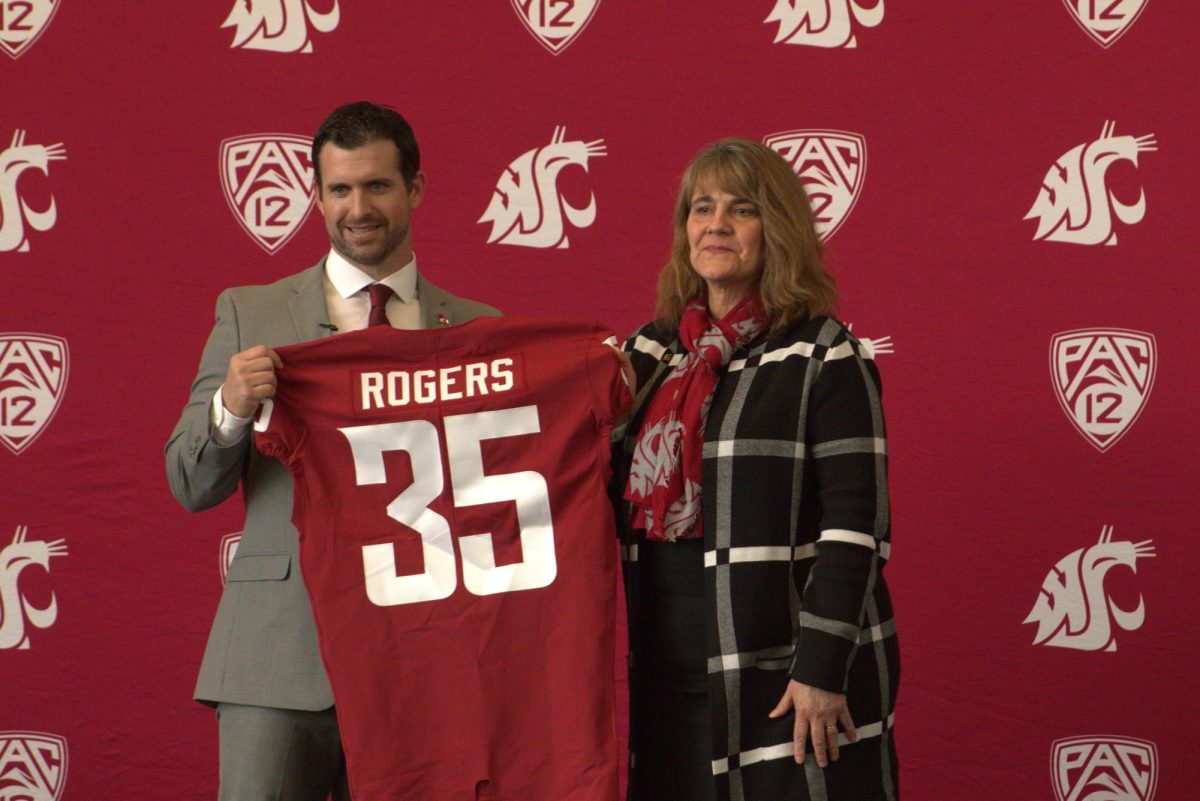WSU’s endowment is used to help scholarships and programs during the school year, as well as a sum of money that has earnings coming off of stocks, bonds and investments, but can not be used on the Athletics defecit.
Total WSU investments have reached $331,503,794, while the WSU Foundation’s endowment market value has reached $662,916,903 as of June 30, 2023, per September updates from the WSU Board of Regents and the WSU Foundation.
Michael Connell, WSU Advancement vice president and WSU Foundation CEO, said the school’s endowment funds are comprised entirely of donor funding.
The endowment, legally known as the consolidated endowment, is comprised of at least 1,000 endowment accounts, Connell said. Every account contains varying amounts of funds deposited by donors who dictate how the funds will be used, though the great majority of the funds are used for various scholarships, he said.
While the majority of the endowment accounts are legally assets of the WSU Foundation, a number of the accounts are assets of WSU itself, Connell said. Most of the endowment is controlled by the Foundation as it has more freedom to invest than WSU. The profits from investments made by the Foundation’s assets and endowment accounts are then ultimately used in line with donor intentions.
“The idea is that the endowment is a perpetual amount of money that is always having earnings that are coming off of those stocks, bonds and investments,” Dawn Barnard, WSU Advancement associate vice president and WSU Foundation CFO said. “Then that money is what is helping scholarships and programs throughout the year.”
Leslie Brunelli, WSU CFO and Executive Vice President for Finance and Administration, said funds from the state of Washington comprise 26% of WSU’s annual operating sources while tuition and fees cover 20% of it, This comprises WSU’s main operating budget which includes funding for academics and faculty, and is 52% of WSU’s overall budget, she said.
WSU runs on an estimated $635 million per year, she said. Out of all of these funds, 61% goes toward paying salaries and wages, 21% goes toward benefits such as insurance and 18% goes toward operations such as utilities and IT support, she said.
These funds cannot be used toward the Athletics deficit as WSU’s core operating budget does not go toward athletics funding as Cougar Athletics has an alternate source of funds such as ticket sales, donations and the media rights deal from the Pac-12, Brunelli said.
Grants and contracts also comprise a majority of WSU’s funds, with 16% being granted from the Federal government, 8% being granted from the State and 3% being local, Brunelli said. These funds have much narrower purposes as these funds must only be used for their written purpose and activity, she said.
“Athletics has gotten themselves into a deficit situation that dates back to 2011. Since 2011, they have been spending more dollars than they were bringing in on an annual basis, and that accumulated over time,” she said. “They have that deficit as part of their operations. There is not a piece of the institution that is paying that back, the expectation has been that Athletics will pay that back over time.”
Alongside Washington legislation, WSU’s operating budget also serves as a basis for whether tuition should increase or not, she said.
“There’s a cap that is set by the state of Washington that is based on the average wage over a 14-year period,” she said.
WSU has been allowed by the state of Washington to maintain its tuition increase of 3%, a subject that is currently being processed by the Board of Regents, Brunelli said.
“At the Regents meeting in September, we were proposing [a tuition increase of] 3%,” she said. “The next step of that is at the November Board of Regents meeting, we will take that as a future action item and then it would take until January to be an actual action item on which they will vote.”
According to the Board of Regents’ Sept. 2023 agenda, a number of WSU’s current investments include the United States Treasury, agency bonds, mortgage-backed securities and others. WSU is also actively investing in real estate, Connell said.
Whether or not these funds could be used to pay off WSU’s Athletics’ deficit of $59.7 million or to avoid a tuition hike similar to the last 3% increase in tuition, largely depends on the contract between the donor and the school, Connell said.
“We have an agreement: ‘Here’s the money the donor provides to WSU in the WSU foundation; here’s how we all agree the funds will be utilized.’ So any use that’s not consistent with that is in violation of the contract,” he said.
A violation of agreed-upon terms with a donor would also be in violation of IRS guidelines for the WSU Foundation as a registered nonprofit, Barnard said.
“We also have IRS guidelines that we have to follow as being a nonprofit and to follow all of those, we do our tax reporting every year,” she said. “So we do have a lot of compliance and outside entities looking at our operations just to make sure that we are exactly following those donors’ wishes.”
Funds from donors would only be able to go to paying off the Athletics deficit or avoiding a tuition hike if the donors specified their funds as discretionary for the President to use as he sees fit, and if the Athletics deficit and amount of tuition were among those uses, Connell said.
“If the donor says ‘I just want to create an endowment for discretionary funding,’ there’s a teeny tiny bit of that President Schultz probably has some discretion over. [That would be] less than 1%, probably for environment insurance, a million bucks,” Connell said. “Even if it’s a million in the endowment, he would only have access to the earnings [from the investments]. So it’d be tens of thousands of dollars.”
While these discretionary funds may not be readily public knowledge, very little of the funds from WSU’s Endowment go toward discretionary funding, Connell said.
A complete list of all of the entities who have donated or actively donate to WSU is publicly available. Some donors wish to remain anonymous, but lists are often published of those who do wish to be recognized, he said. There may be some impacts on athletics fundraising due to the current uncertainty with the Pac-12 Conference, Connell said.
“Will we seek additional private support for the Athletics department? I think there’s a lot [to be determined] there,” he said. “I think it’s safe to say that, relative to Cougar Athletics, notwithstanding the fact that we’re gonna have a whole lot of young men, women and really good coaches doing their very best. A lot of things at Cougar Athletics are going to change in the next year to five, and so fundraising for Athletics I think will change too.”
For those desiring more information on the University’s investments, a public records request would be possible, he said.




















